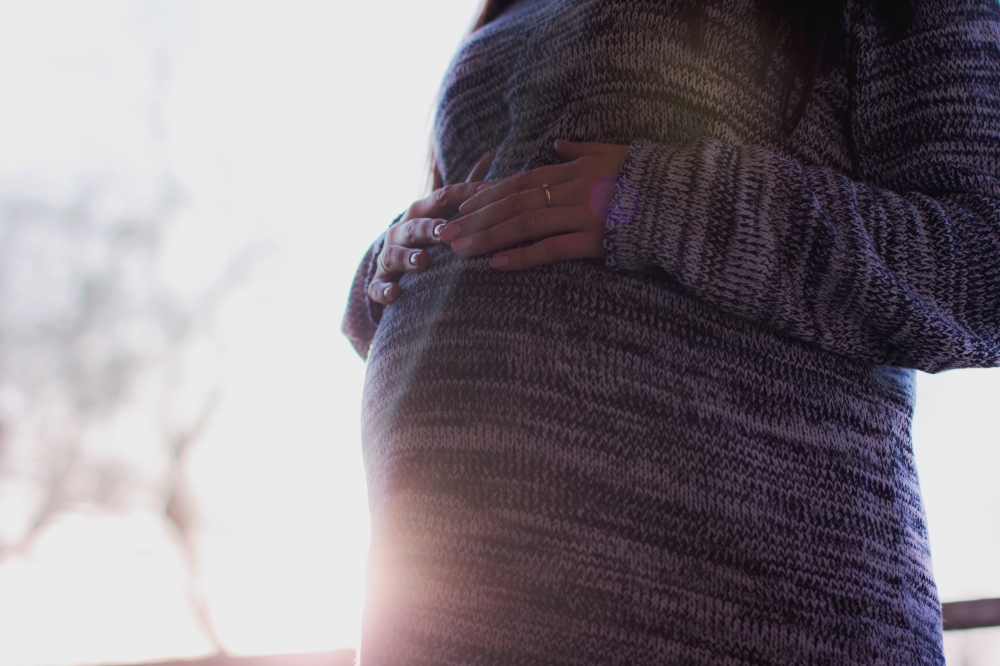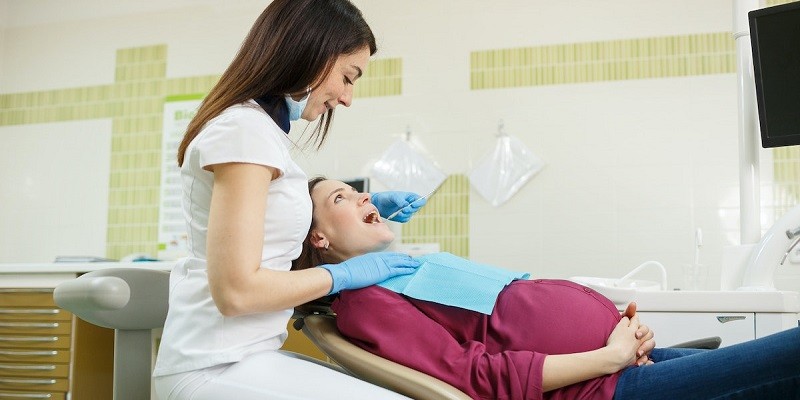Last Updated on June 6, 2023
Yes, you can get a root canal while pregnant as it is considered safe during any trimester. A root canal is a dental procedure that removes damaged or infected pulp from the tooth and is performed under local anesthesia to alleviate pain.
It is always recommended to consult with your dentist and obstetrician before undergoing any dental treatment while pregnant. They will evaluate your situation and determine if it is safe for you and your developing baby. Delaying necessary dental treatment during pregnancy can lead to complications such as infection and pain, which may harm your health and the baby’s.
However, some procedures like teeth whitening and non-emergency procedures are best postponed until after delivery.

Credit: www.rootcanalcharlestonsc.com
Understanding The Safety Of Root Canal Procedures During Pregnancy
Overview Of Root Canal Procedures
Root canal procedures are a type of endodontic treatment that helps save damaged or infected teeth. During this procedure, the dentist removes the tooth’s pulp, cleans the canals, and seals it. Root canals typically involve at least two visits to the dentist.
Safe Dental Work During Pregnancy
Pregnant women can safely undergo most dental procedures, including root canal treatments, as long as they are done with appropriate precautions. It is crucial to inform your dentist that you are pregnant and what trimester you are in before the procedure.
X-rays are generally safe during pregnancy, especially with a lead apron to protect the abdominal area. The second trimester is the safest time to perform routine dental procedures. If you need a root canal procedure, it’s best to wait until after the first trimester, which is an important period of fetal development.
How Is Dental Work Different During Pregnancy?
Dental work during pregnancy may require some modifications. Hormonal changes during pregnancy increase the risk of pregnancy gingivitis. Poor oral health can lead to complications such as premature labor or low birth weight of the baby. Therefore, pregnant women should take care of their oral hygiene and see their dentist for routine check-ups.
It’s essential to keep your dentist informed about your pregnancy and any health issues you may have. The use of certain medications, such as antibiotics and pain relievers, may be limited during pregnancy. Your dentist can advise you on which medicines are safe to use during pregnancy.
Here are some recommended precautions for pregnant women during dental procedures:
- Avoid dental procedures in the first and third trimesters.
- Have dental work done while seated comfortably with your legs raised slightly.
- Consider natural pain relief options such as breathing techniques or meditation.
Remember that proper oral hygiene is crucial during pregnancy to ensure the health of the mother and baby. By taking the necessary precautions, pregnant women can safely receive root canal procedures and other dental treatments.
Factors Influencing Pregnancy And Root Canal Treatments
Understanding Pregnancy Risks And Dental Procedures
Pregnancy is a time when a woman’s body goes through a lot of changes while constantly adapting to growing life inside her. A pregnant woman must be careful about her health and the baby’s during every stage of pregnancy. Regarding dental procedures, there are inherent risks involved when it comes to performing certain procedures.
But thankfully, root canal treatments are generally safe procedures for pregnant women. Here are some key points to keep in mind:
- Dental procedures involving drilling, anesthesia, and radiography may increase the risk of miscarriage and congenital anomalies in the fetus, but only under specific circumstances.
- The avoidance of oral health care during pregnancy can lead to dental issues that can affect both the mother and the child’s health.
The Role Of Anesthesia And Radiography During Pregnancy
When it comes to getting a root canal treatment, a pregnant woman must be cautious about the type and amount of anesthesia used during the procedure. Here are some things to consider:
- Local anesthesia and nitrous oxide (commonly known as laughing gas) are considered safe during pregnancy.
- Conscious sedation, which involves administering iv sedatives, is not recommended during pregnancy.
- As for radiography, dental x-rays require a minimal amount of radiation and do not pose a significant risk to pregnant patients. Still, dentists may opt to delay the procedure until after the first trimester or use a lead apron to protect the womb.
When Is The Best Time To Get A Root Canal During Pregnancy?
The timing of a root canal treatment during pregnancy depends on the patient’s condition and whether or not urgent dental care is needed. Here are some points to consider:
- The second trimester (between 14 and 20 weeks) is considered the safest time for a dental procedure because fetal development is stable by then, and the risk of miscarriage is lower.
- Non-emergency dental procedures can be postponed until after the baby is born.
- However, in some cases, such as severe tooth pain or infection, a root canal may be necessary. The dentist will work with the patient’s obstetrician to decide on the best course of action.
Pregnant women can get a root canal treatment without significant risks to their health or the baby’s, as long as a few factors are taken into account. If you are pregnant and in need of dental care, it’s best to talk to your dentist and obstetrician before making any decisions.
Alternatives To Root Canal Treatment During Pregnancy
Root canal treatment is a common dental procedure that is considered safe for most individuals, but what about during pregnancy? If you are expecting, you might be wondering if it is safe to undergo a root canal. Fortunately, there are alternatives available, and it is always best to consult with your dentist before any dental procedure, especially during pregnancy.
When Is A Root Canal Not A Viable Option During Pregnancy?
Although root canal treatment is typically safe, there are moments during pregnancy when it is not a consideration. Here are some instances:
- During the first and third trimesters: The first trimester and the third trimester are the critical phases of development for the fetus. During these periods, it is best to avoid any elective dental procedures. Treatment for emergencies should be done in consultation with your obstetrician.
- When dental x-rays are unavoidable: Although dental x-rays are safe, it is recommended to avoid them during pregnancy, except in emergencies. If a dental x-ray is deemed essential, the dentist must take measures to ensure the minimum radiation exposure to the developing fetus.
Safest Alternatives To Root Canals When Pregnant
If root canal treatment is not a viable option, there are alternatives that your dentist may recommend. Here are some of the safer alternatives:
- Medication: Your dentist may prescribe pain medication or antibiotics to combat the infection, which has caused the need for a root canal.
- Pulpectomy: This procedure is less invasive than a root canal and involves removing infected tissue from the affected tooth’s pulp chamber. After a pulpectomy, your dentist will fill the cavity with a dental filling.
- Extraction: In most cases, root canal treatment is the best course of action. However, in exceptional cases where the tooth’s infection poses a threat to the mother and child’s health, extraction may be necessary.
The Importance Of Consulting With Your Dentist While Pregnant
Not all dental procedures performed during pregnancy are harmful, and it is still necessary to maintain good dental hygiene. However, it is essential to discuss any dental procedures with your obstetrician and dentist. Here are some of the things that your dentist may recommend:
- Schedule regular dental check-ups: Regular check-ups are crucial during pregnancy, so ensure that you maintain your dental appointments.
- Dental cleaning: Professional cleaning performed by your dentist or a dental hygienist will help maintain good oral hygiene and avoid gum disease.
- After care: If you undergo any dental treatment during pregnancy, follow your dentist’s after-care instructions to prevent complications.
It is essential to prioritize good dental hygiene, especially during pregnancy. Although a root canal treatment may not be the most viable option when you are pregnant, there are alternatives available. Consult with your dentist and obstetrician before you undergo any dental procedures to ensure the safety of you and your baby.
Frequently Asked Questions For Can You Get A Root Canal While Pregnant?
Can You Have A Root Canal While Pregnant?
Having a root canal during pregnancy is safe, but second trimester is the best time.
Can A Root Canal Cause A Miscarriage?
Root canal doesn’t cause miscarriage, but discuss with your dentist about safety measures.
What Dental Problems Are Common During Pregnancy?
Pregnancy can cause gum disease, sensitive teeth, and enamel erosion. Regular checkups are advised.
Can Pregnancy Affect Dental Anesthesia?
Pregnancy can affect anesthesia effectiveness, so tell your dentist about your pregnancy.
Is It Safe To Get A Dental X-Ray While Pregnant?
During pregnancy, it’s best to avoid dental x-rays, but lead apron can be used.
Conclusion
Getting a root canal while pregnant is generally safe, but it’s important to take precautions and work closely with your dental and medical professionals. Communication is vital between your dentist and obstetrician to ensure that the necessary precautions are taken to maintain your health and the health of your baby.
Avoiding any non-emergency dental procedures during the first and third trimesters is generally recommended. However, if a root canal is necessary during these times, your dental professional and obstetrician will work together to minimize any risks. It’s essential to prioritize your oral health during pregnancy, as untreated dental issues can lead to more severe health problems, and the risk of a root canal is minimal compared to the potential risks of leaving dental problems untreated.
Ultimately, with proper planning and communication, getting a root canal while pregnant can be a safe and necessary procedure.

